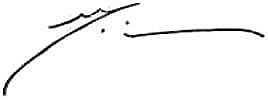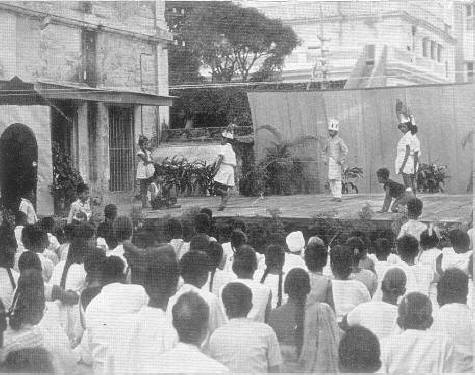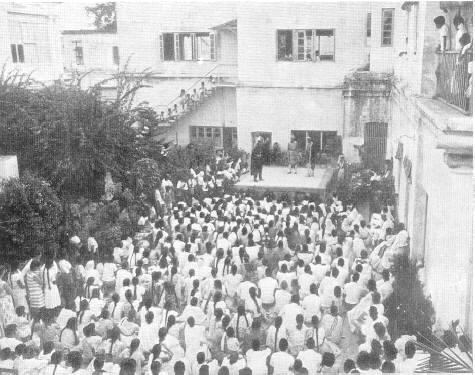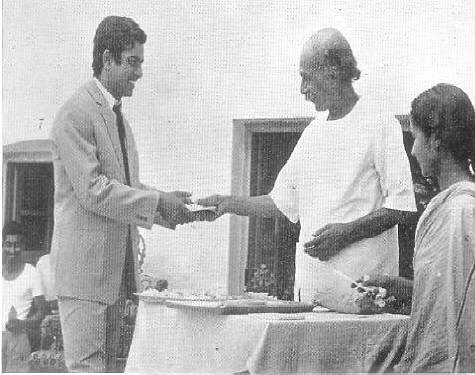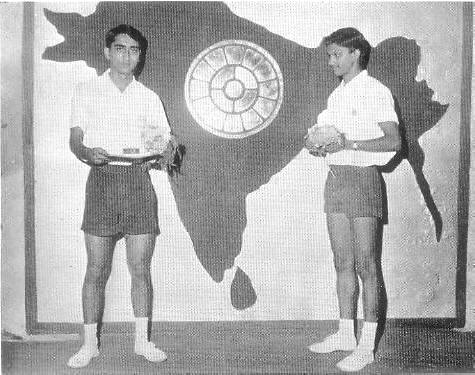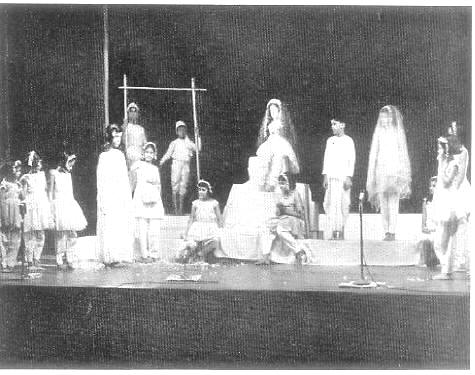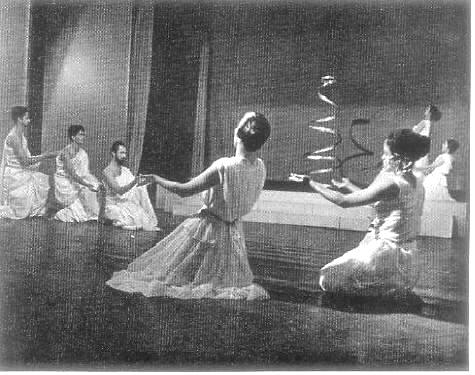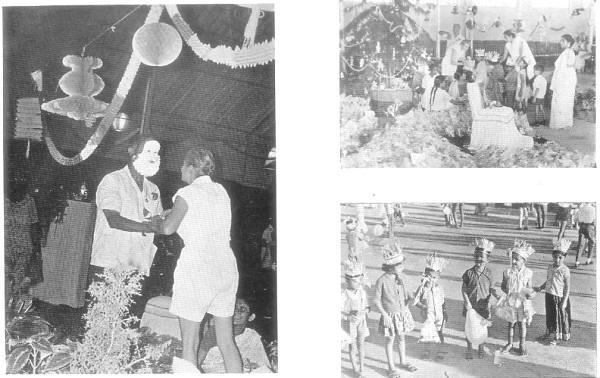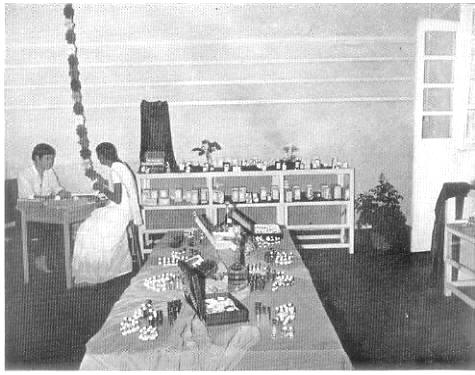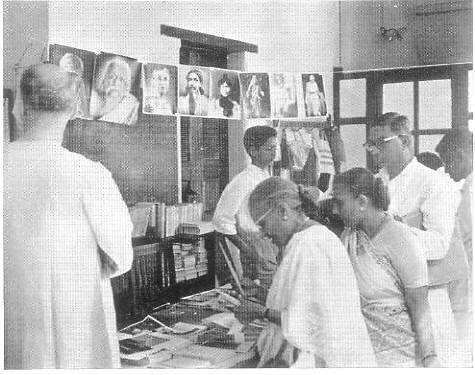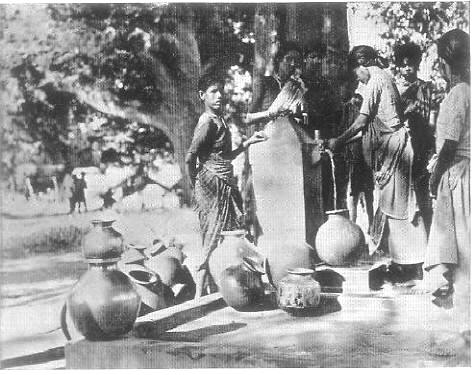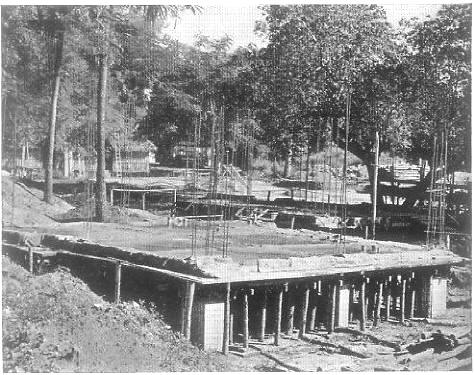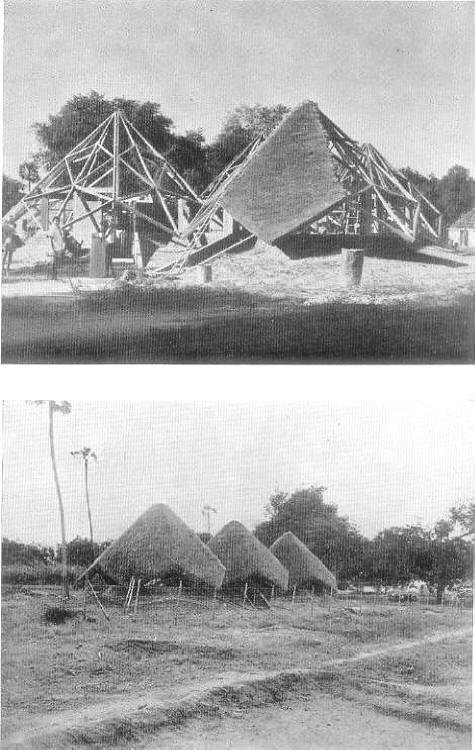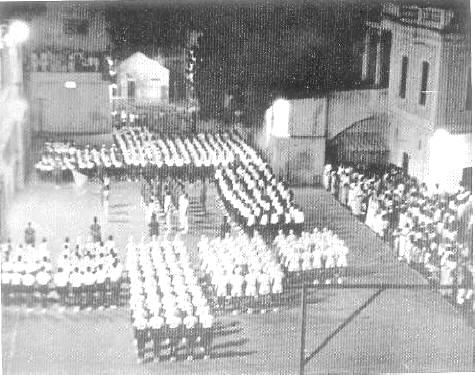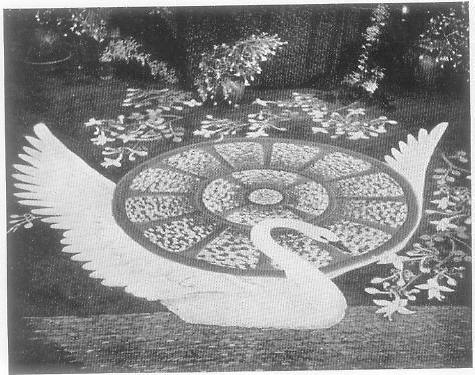|
une dose, mais une toute petite dose, une goutte infinitésimale, de Ça,
cela peut vous guérir en une minute—"cela peut" : ça vous guérit, ce
n'est pas "cela peut" ; que l'on est tout le temps comme cela, en équilibre, que la moindre défaillance, c'est le désordre et la fin, et que juste
une goutte de Ça. ..cela devient la lumière et le progrès. Les deux extrêmes. Les deux extrêmes à côté l'un de l'autre.
C'est une constatation que l'on fait au moins plusieurs fois par jour.
Mais naturellement, si cet instrument-là était fait pour constater, expliquer, décrire, il pourrait dire des merveilles, mais voilà... Je pense
— je ne sais pas, mais ça a l'air d'être la première fois que l'instrument, au
lieu d'être fait pour apporter la "Nouvelle", la "Révélation", donner
l'éclair, a été fait pour... essayer de réaliser —faire le travail, la besogne
obscure. Et alors il constate, mais il n'entre pas béatifiquement dans la
joie de la constatation, et il est obligé à chaque minute de voir que, malgré
ça, combien de travail reste à faire... Et alors, lui, ne pourra se réjouir que
quand le travail sera fait — qu'est-ce que cela veut dire, le "travail fait" ?...
Quelque chose qui est établi. Cette Présence divine, cette Conscience divine,
cette Vérité divine, se manifeste comme cela, par éclair, et puis. ..tout
continue à aller son petit bonhomme de chemin — il y a un changement,
mais un changement imperceptible. Eh bien, pour lui (le corps), c'est très
bien, je suppose que c'est cela qui soutient son courage et qui lui donne
une espèce de paix souriante malgré ce qu'il y a de très peu satisfaisant
dans le résultat ; mais cela ne peut pas le satisfaire, il ne sera satisfait
que... quand ce sera fait, c'est-à-dire quand ce qui est maintenant une
révélation — éblouisssante, mais de courte durée — sera un fait établi,
quand vraiment il y aura des corps divins, des êtres divins et qui auront
affaire avec le monde d'une façon divine, alors là — là, il dira oui, ça y
est ; mais pas avant. Eh bien, cela, je ne crois pas que ça puisse être pour
tout de suite.
Parce que je vois bien, je vois bien ce qui est en train de travailler ;
je te l'ai dit, il y a de ces choses qui, oui, si j'étais destinée à raconter et à
expliquer et à prédire, avec cela on pourrait faire tout un enseignement,
avec une de ces expériences — j'en ai au moins plusieurs par jour. Mais
cela ne sert à rien, n'est-ce pas, je le sais.
Et ce n'est pas une impatience, ce n'est pas même un manque de
satisfaction, ce n'est pas cela du tout, c'est une... une Force, une Volonté
|
a large measure; now it goes much quicker, that is to say, the bulk of the
work is done, still, as I have said, when one sees the degree to which it is
tied to inconscience, to a half vague consciousness and that men do not
know, yet feeling the "fatality", "destiny", calling them Nature and all
that dominating and ruling, well, for the last change to be done, all that
must be fully conscious, and not only in the mental way—that is not sufficient—but in the divine way ! So much remains to be done.
This is just what I see every day with this poor little body, and all
that surrounds it (gesture of a crowding all around), all this substance as it
is, oh !... nothing but illness and misery and disorder, oh !—all that has
nothing in common with the Divine. An unconscious mass.
You mean then to say : unless something comes down and by force
changes it?
Yes.
But Sri Aurobindo says (I read it two days ago, I do not know where
he has written it, for it was only a quotation) that if the divine Consciousness, the divine Power, the divine Love, the Truth manifested itself too
rapidly upon the earth, the earth would be dissolved! She would not be
able to bear it...
I am translating, but the idea is that.
But perhaps not the highest divine dose, but a smaller divine dose
!
(Mother laughs) The smaller dose is always there. It is always there,
the small dose. Even there is a somewhat strong dose also. And if one
looks at That, one is full of wonder. But it is just because of That,
one sees still... as things are.
Well, there is no day when it has not been noticed that one dose, not
a full dose, but just a little dose, an infinitesimal drop of That, can cure
you in a minute—"it can" : it does cure, not that it can; you are all the
while in that state, poised, and the least failing means disorder and end of
all; and just one drop of That... it becomes light and progress. The two
|

